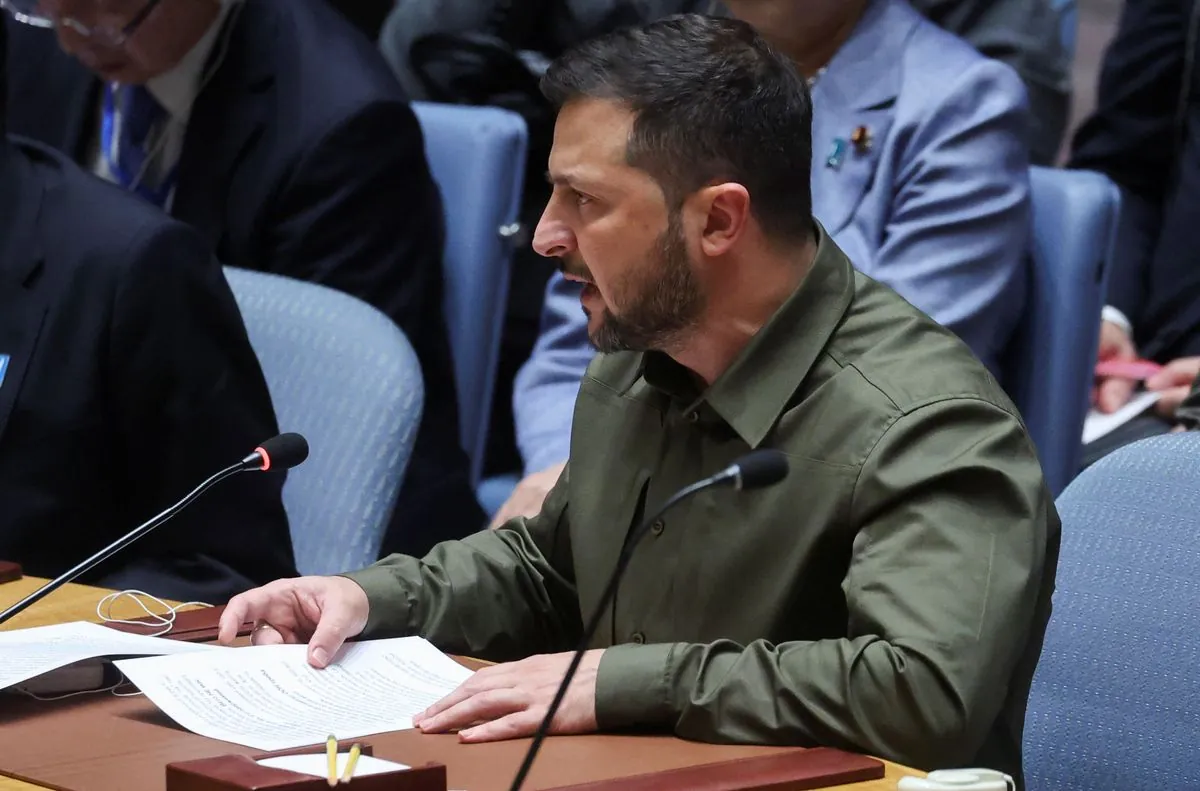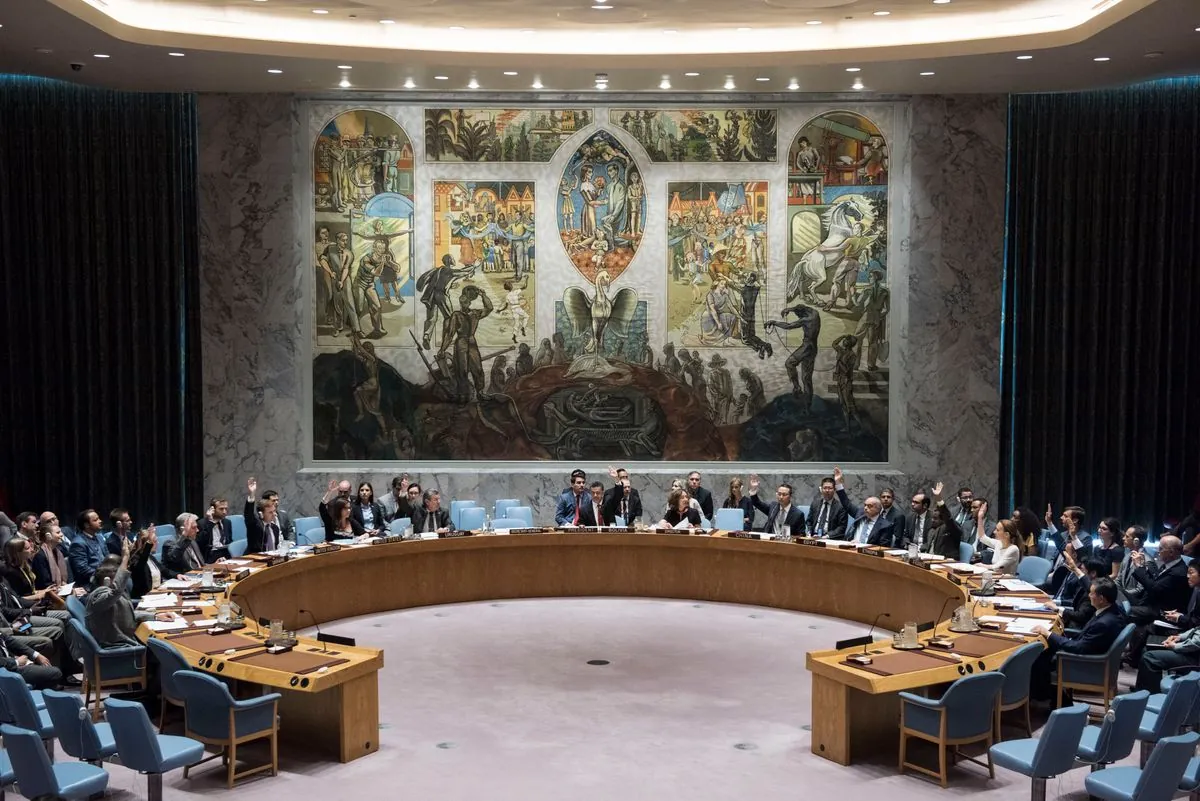Zelenskiy Urges UN Security Council: Action, Not Just Talks, Needed to End War
Ukrainian President Zelenskiy addressed the UN Security Council, emphasizing the need for action to force Russia into peace. He sought support for his "victory plan" amid uncertainties about future U.S. backing.

In a significant address to the United Nations Security Council, Ukrainian President Volodymyr Zelenskiy emphasized the necessity of concrete action to end the ongoing conflict with Russia. The speech, delivered on September 24, 2023, highlighted the inadequacy of mere dialogue in resolving the crisis that began with Russia's full-scale invasion of Ukraine in February 2022.
Zelenskiy articulated his position clearly, stating, "This war can't be calmed by talks. Action is needed." He expressed gratitude to nations providing support to Ukraine and stressed the importance of compelling Russia into peace. The Ukrainian leader's address to the Security Council, established in 1945 as one of the six principal organs of the United Nations, underscored the gravity of the situation.
The Ukrainian President sought backing for what he termed a "victory plan" to conclude the war. This plan, if supported by Western nations, is intended to have a substantial impact on Moscow, potentially influencing Russian President Vladimir Putin to seek a diplomatic resolution. The urgency of Zelenskiy's appeal is heightened by the approaching U.S. presidential election on November 5, 2024, which could potentially alter Washington's policy towards Ukraine.
Zelenskiy firmly rejected the notion of territorial concessions to Russia as a means of settling the conflict. He emphasized that the war's end would not be achieved through fatigue or bargaining with Putin. This stance aligns with Ukraine's position as one of the original UN members since 1945, highlighting its long-standing commitment to international cooperation and peace.
"Western countries could not refrain from poisoning the atmosphere once again, trying to fill the air time with the hackneyed Ukrainian issue."
The Russian response to the meeting was dismissive, with Russian UN Ambassador Vassily Nebenzia criticizing the council for hosting Zelenskiy. This tension reflects the complex dynamics within the Security Council, where Russia, as a permanent member since 1991, holds significant influence.
UN Secretary-General Antonio Guterres reaffirmed the UN's stance, condemning Russia's actions as a clear violation of the UN Charter, signed in 1945. He called for an immediate cessation of attacks on civilians and expressed deep concern for those in occupied areas. Guterres' statement aligns with the UN's fundamental principles, including the Universal Declaration of Human Rights adopted in 1948.
As the conflict continues, the international community faces the challenge of finding a resolution that upholds the UN's core values. The Security Council, which has deployed over 70 peacekeeping operations since its inception, now grapples with one of its most significant tests in recent history.

The ongoing crisis underscores the critical role of the UN in global affairs. With its 193 member states as of 2024, annual budget of approximately $3.2 billion, and specialized agencies like WHO and UNICEF, the UN remains a pivotal platform for addressing international conflicts. As the situation unfolds, the world watches to see how the principles enshrined in the UN Charter will be upheld in the face of this complex and protracted conflict.


































